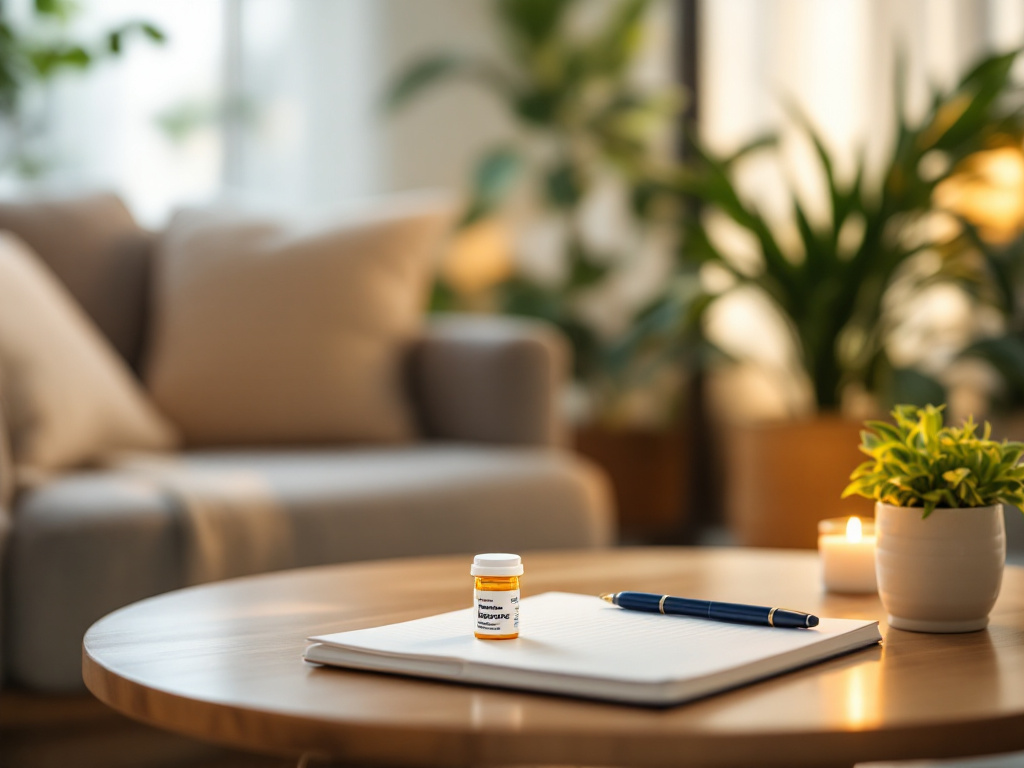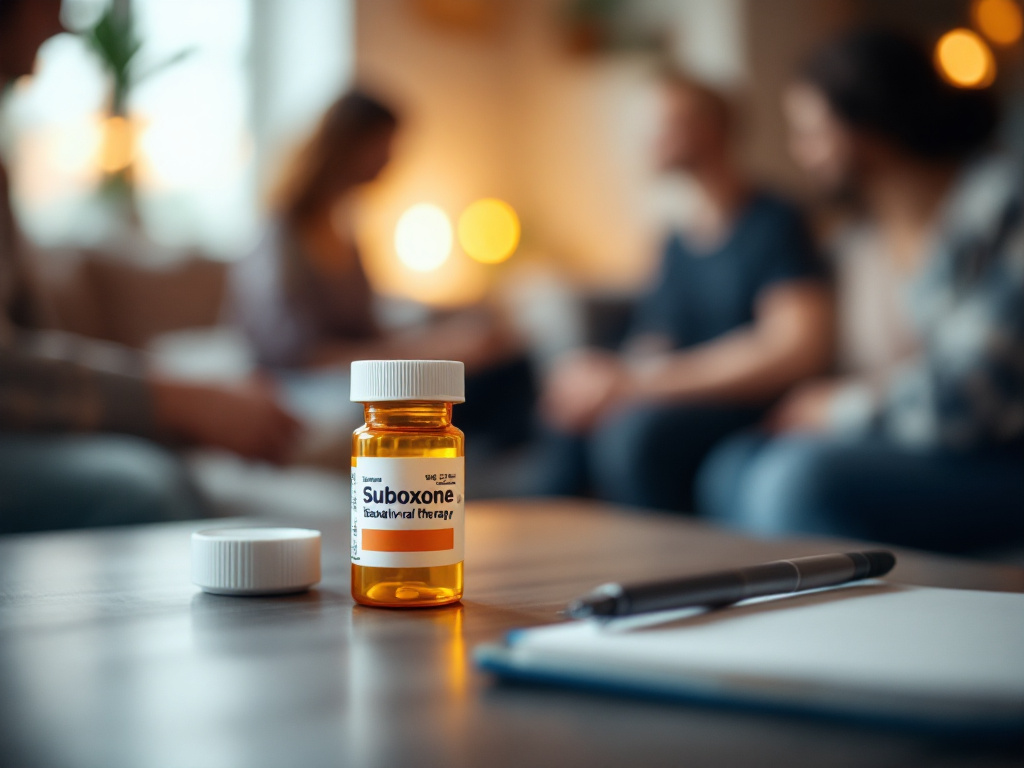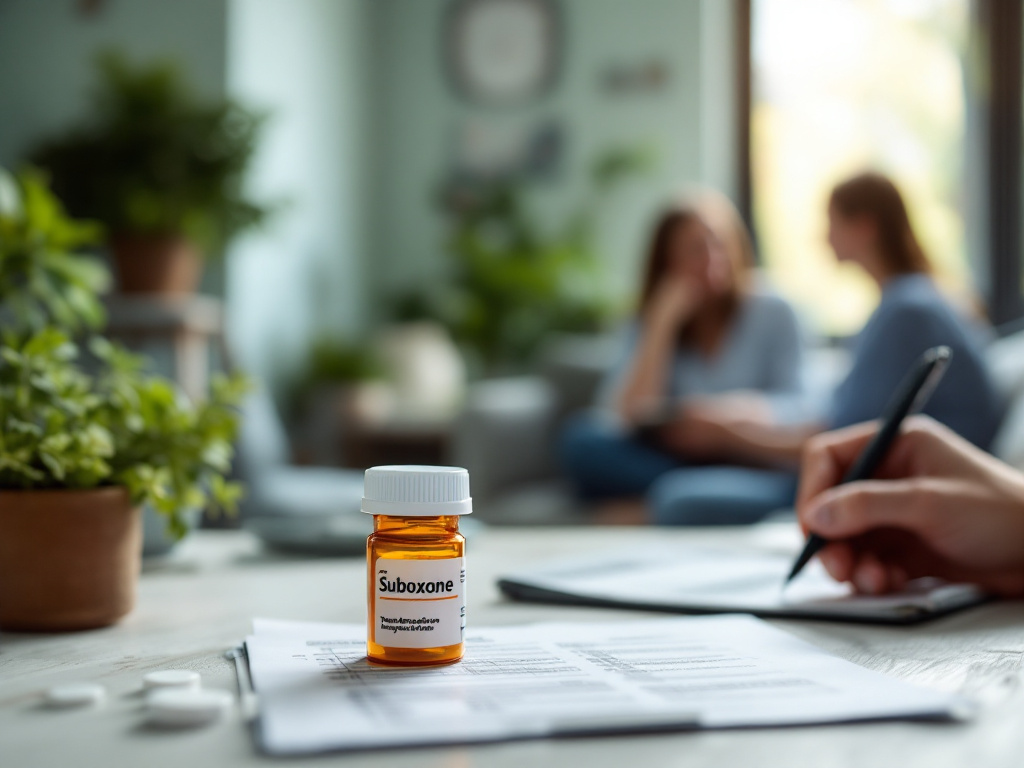Understand opioid addiction
Opioid addiction, also known as opioid use disorder (OUD), occurs when you become dependent on substances such as prescription painkillers, heroin, or synthetic opioids like fentanyl. These drugs bind to specific receptors in the brain, lessening pain and often producing a sense of euphoria. While that euphoric effect might seem helpful in the moment, it comes with substantial risks. Tolerance can develop rapidly, meaning you need increasingly higher doses for the same relief–a cycle that can quickly spiral into addiction.
Seeking effective opioid addiction treatment as soon as possible is essential. According to the Centers for Disease Control and Prevention, prescription opioid misuse contributed to a wave of increasing overdoses in recent decades, and the crisis continues today. In fact, it was reported that nearly 50,000 people in the United States died from opioid-involved overdoses in 2019 alone (Cleveland Clinic).
It is easy to underestimate the power of opioids. Beyond creating physical dependence, they can trigger changes in how you feel emotionally, making it tough to break free, even when you are aware of the consequences. You or your loved one may find everyday responsibilities overshadowed by the need to obtain and use opioids. That is why a comprehensive, well-structured plan for recovery is so critical.
The impact on your health
Opioids can generate side effects such as nausea, vomiting, constipation, dizziness, and sedation (Faculty of Pain Medicine). When used beyond recommended dosages or taken without supervision, they increase the danger of fatal overdose. Even if you avoid that worst-case scenario, prolonged use places strain on every aspect of your life—physical, emotional, and social. You may experience heightened anxiety, trouble sleeping, or severe withdrawal symptoms if you try to reduce or quit.
Withdrawal can involve muscle aches, mood swings, and intense cravings. Many individuals relapse simply to avoid discomfort. Effective solutions exist, but it is vital to get medical guidance to navigate the complexities of OUD.
The growing need for help
Demand for professional assistance is on the rise. In 2020, the SAMHSA Helpline (Substance Abuse and Mental Health Services Administration) received over 833,000 calls, marking a 27 percent increase from the previous year (SAMHSA). This surge demonstrates that more people today are courageously seeking help.
If you or a loved one is struggling with opioid use, remember that hope is possible. Part of that hope lies in connecting with a dedicated treatment program—one that provides both compassionate support and research-driven strategies for lasting recovery.
Explore treatment approaches
A variety of evidence-based methods help combat opioid addiction. Determining the right approach depends on your personal situation and health. While some individuals require close supervision in a residential setting, others can benefit from flexible outpatient programs that allow them to continue working or caring for family members. Every path is unique, and shared decision-making with your medical provider is encouraged (NCBI Bookshelf).
Inpatient vs outpatient care
Inpatient treatment admits you to a controlled environment, offering round-the-clock medical supervision. Programs can last from 30 days to several months, depending on the severity of addiction (Addiction Center). During inpatient treatment:
- You receive medically assisted detox to navigate withdrawal.
- The controlled setting reduces distractions and triggers.
- You have access to continuous emotional and clinical support.
Meanwhile, outpatient treatment offers flexibility, allowing you to continue daily responsibilities while attending therapy sessions. This approach can be less disruptive but demands a strong commitment. Outpatient programs can last from a few months to a year or more:
- You can uphold work or family obligations.
- You still receive structured counseling and relapse-prevention education.
- You visit specialized clinics or attend group therapy at scheduled times.
Each path—whether inpatient or outpatient—can be effective. Research shows that inpatients may be more likely to complete treatment, but many people prefer outpatient options due to convenience and lower costs (NCBI Bookshelf). What matters most is a quality program that meets your specific needs.
If you require a medically supervised detox, you might consider our medically supervised detox placement services. These ensure your withdrawal symptoms are monitored, helping you avoid the relapse risks often associated with opioid dependence.
FDA-approved medications for OUD
Medication-assisted treatment (MAT) is at the heart of many opioid addiction treatment strategies. In the United States, three primary medications are approved by the Food and Drug Administration (FDA) for opioid use disorder:
- Methadone: A long-acting opioid agonist administered in specialized clinics. When prescribed properly, methadone can reduce cravings and withdrawal symptoms. If you are exploring this option, consider our methadone treatment program.
- Buprenorphine: A partial opioid agonist that reduces cravings without creating the intense euphoria of dangerous opioids. Buprenorphine-based treatments (like Suboxone) allow you to manage your challenges more safely, often in an outpatient environment. You can learn more about our suboxone treatment program if this medication is right for you.
- Naltrexone: An opioid antagonist, delivered orally or via injection (Vivitrol), that blocks opioid receptors in the brain, thus preventing the “high.” You might find our vivitrol treatment program a suitable path if you want to prevent relapse without using agonist medications.
These medications are proven to reduce cravings and prevent overdose risks by stabilizing your system. They also enhance your ability to focus on recovery through therapy, counseling, and lifestyle changes. If you require an immediate visit to explore buprenorphine, Freedom Treatment provides a same day suboxone appointment to help you take swift action.
Embrace a comprehensive approach
For true healing, opioid addiction treatment must go beyond detox and medication. You need a supportive environment offering a combination of therapy, holistic healing, and lifestyle education. Treating the whole person is critical. The journey usually starts with stabilization but should continue with measures that address underlying triggers, co-occurring disorders, and emotional wellbeing.
The role of therapy
Counseling is a cornerstone in opioid addiction treatment. Cognitive Behavioral Therapy (CBT), for instance, helps you understand and restructure negative thought patterns that can jeopardize your progress (ABCT). CBT is often used in either a group or individual setting to:
- Identify and avoid triggers.
- Strengthen positive coping skills for everyday stress.
- Encourage self-awareness and emotional insight.
Beyond CBT, you may engage in substance abuse counseling, which can address your personal history, relationships, and environment. At Freedom Treatment, we also acknowledge the utility of additional methods like Motivational Interviewing, Dialectical Behavior Therapy, and Family Therapy.
In many cases, combining therapy with medication fosters faster progress. If you are juggling work, child care, or other commitments, we provide telehealth addiction treatment options. A strong virtual support system can be a lifeline if you face obstacles getting to appointments in person.
Holistic methods for well-being
Addiction touches not only your physical health but also your emotional and spiritual wellness. Holistic approaches integrate your mind, body, and spirit, restoring a sense of balance and self-awareness. According to some treatment centers, these methods include art therapy, music therapy, yoga, and mindfulness exercises (Kemah Palms).
You might be surprised by how effective such practices can be in reducing stress and keeping you grounded in recovery. For example, meditation can help you process cravings without immediately giving in to them. Incorporating holistic therapies into your schedule can offer an added boost of inner calm.
Overcome withdrawal challenges
Withdrawal from opioids, while challenging, is manageable with the right support. These symptoms happen because your body and brain have adapted to the presence of opioids; once you stop using them, your system struggles to rebalance itself. The discomfort can be substantial, leading many individuals to give up prematurely. However, supervised withdrawal management can help you navigate these difficulties more successfully.
Practical steps for relief
- Medically supported detox: If you have moderate to severe opioid dependency, overseeing detox with professionals mitigates health risks. An on-site medical team supplies medication and expertise to reduce pain and discomfort.
- Outpatient detox: This option suits milder dependence. Even here, regular appointments allow clinicians to monitor withdrawal symptoms and prescribe medication to lessen cravings. You keep up with work or other obligations, which can be vital for your sense of normalcy (Addiction Center).
- Medication management: Buprenorphine or methadone can ease withdrawal symptoms, making them less intense. We offer an opioid withdrawal management program designed to help you handle these initial days of treatment more comfortably.
Importance of a supportive environment
Nobody should face withdrawal alone. A caring environment, whether at home or in a clinical setting, offers accountability and nurtures your resolve. It is common to feel anxious or even ashamed during early recovery, especially when physical symptoms intensify. Surrounding yourself with a team of medical professionals, counselors, and peers who understand your journey can make an incredible difference, reminding you that you deserve compassion and the chance to heal.
At times, a family setting might not be conducive to recovery. If that is your situation, inpatient care could provide the respite you need. Similarly, if you feel an outpatient format is sufficient, your treatment team will still ensure you have people to contact if cravings escalate or mental health issues surface. Either way, you have direct access to help when you need it most.
Choose Freedom Treatment
Choosing a provider for drug and alcohol addiction services is a decision that shapes your future. At Freedom Treatment, we prioritize your comfort, respect your unique challenges, and strive to create that all-important supportive environment for long-term success. Because addiction rarely exists in isolation, we design tailored treatment programs reflecting your distinct history, health, and personal goals.
Our tailored plans
Your needs guide every step of our approach. We blend evidence-based treatments like CBT, medication-assisted therapy, and holistic practices. This ensures comprehensive care that addresses both the physical and emotional aspects of addiction. We also understand the demands of daily life, so we accommodate your schedule with options such as:
- Flexible evening addiction appointments
- Saturday outpatient addiction services
- Telehealth addiction treatment
For mothers-to-be or new mothers, we offer a maternity addiction treatment and postpartum addiction therapy program, ensuring you receive specialized attention. If you worry about confidentiality, our confidential opioid clinic is committed to protecting your privacy.
We take pride in our individualized medication assisted therapy, which tailors the dosage of buprenorphine (Suboxone), methadone, or naltrexone to your personal treatment needs. If you or your loved one requires immediate help, be sure to check whether a same day suboxone appointment is available so you can start treatment without delay.
Benefits of specialized services
- Comprehensive care: Our staff is trained to handle co-occurring disorders, such as depression or anxiety, through dual diagnosis treatment outpatient services.
- Individualized plans: We customize your treatment so you get exactly what you need, whether that is customized substance abuse counseling or specialized medication adjustments through our medication management opioid use disorder program.
- Robust recovery support: Progress does not stop after completing your official program. We educate you about relapse prevention through services like outpatient relapse prevention planning.
- Practical resources: We accept many insurance plans. If you live in Pennsylvania, our insurance accepted outpatient pittsburgh page provides details on how to keep your care affordable.
- Holistic extras: Interventions like yoga, meditation, or group workshops can reduce stress and improve your mental well-being, helping you stay on track.
Through every stage, you receive unwavering support necessary for lasting recovery. Freedom Treatment’s mission is to empower you, ensuring you feel heard, cared for, and encouraged to move forward.
Build a robust support system
Getting well is an ongoing process, and strong social connections help you recognize that you are not battling addiction alone. Recovery is easier when you have family members, friends, and peers assisting you day by day. The sense of belonging and acceptance often helps diminish feelings of shame or isolation.
Engaging family and friends
Substance use can damage relationships, but you can take significant steps toward healing by including loved ones in your treatment. Family therapy, such as a family therapy outpatient program, offers a safe space to:
- Improve communication skills and reduce conflict.
- Gain deeper insights into each other’s emotions.
- Foster empathy and shared goals for health.
Involving family can strengthen your safety net. When relatives understand the science of addiction and learn to respond more empathetically, you may find your motivation to remain in treatment grows. This mutual understanding helps reduce relapse risks and encourages long-term stability.
Life after treatment
Preventing relapse and maintaining progress require continued care. That is why many centers, including Freedom Treatment, offer an aftercare substance abuse program to keep you on track. Aftercare can include:
- Ongoing therapy: One-on-one sessions with a counselor to sustain positive behaviors.
- Peer support groups: Group settings where you can share challenges, celebrate successes, and learn from others on similar paths. Check out our group therapy addiction counseling for details.
- Skills-building: Relapse-prevention training, job assistance, and healthy coping strategies for day-to-day hurdles. If you need help focusing on long-term career goals, career support addiction recovery might be an option.
Remember, it is a marathon, not a sprint. Sustained recovery thrives on ongoing engagement, honest communication, and readiness to adapt your treatment plan if relapses or new challenges emerge.
Address key questions
Below are some frequently asked questions about opioid addiction treatment. If you have others, do not hesitate to ask a qualified professional at Freedom Treatment. Our goal is to ensure you have empowering, research-backed information.
1. Can medication alone cure opioid addiction?
Medication can be a critical component of recovery, but it works best when combined with counseling and behavioral therapies. According to the FDA, medications like buprenorphine, methadone, and naltrexone have proven effective in reducing opioid use and preventing overdose, but they do not resolve the underlying causes of addiction (FDA). Counseling, lifestyle changes, and building social support are equally essential.
2. What is the difference between inpatient and outpatient opioid treatment?
Inpatient treatment involves residing at a facility with continuous medical, emotional, and clinical support. It helps you focus exclusively on recovery away from external triggers. Outpatient treatment, on the other hand, allows you to remain at home, work, or attend school while visiting a center frequently for therapy sessions. If you need more flexibility, outpatient programs (such as outpatient addiction treatment) might be a better option. If you are unsure which approach is right for you, consult professionals who can evaluate your unique challenges.
3. How do I know if I have opioid use disorder?
Some signs of opioid use disorder include needing higher doses to achieve the same effect, experiencing withdrawal symptoms (such as nausea, aches, or anxiety) when not using, and feeling powerless to cut back despite harmful consequences. Symptoms can also include spending a great deal of time obtaining opioids or recovering from them, as well as ignoring personal or professional responsibilities. If you believe you might be experiencing these issues, speaking with an opioid addiction treatment doctor can be an ideal next step toward clarity and care.
4. Does insurance cover opioid addiction treatment?
Many insurance providers offer coverage for substance use disorder care, including detox, medication, and ongoing therapy. Freedom Treatment welcomes a variety of plans, and you can review our insurance accepted outpatient pittsburgh section to learn more. Always verify coverage directly with your insurance company before beginning a program to avoid surprises with out-of-pocket costs.
5. How can I support a loved one struggling with opioid dependence?
Offer compassion, a willingness to listen, and reassurance that help is available. Encourage them to explore professional opioid addiction treatment programs or to schedule a same day suboxone appointment for immediate support. Look into family sessions through options like a family therapy outpatient program. Remain patient throughout their recovery, and seek help for yourself if you need guidance to effectively support them. Recovery is a team effort, and your empathy can make a profound difference.
Opioid addiction may feel overpowering, but you do not have to fight alone. By choosing a comprehensive program tailored to your needs, you can break the cycle of dependency and reclaim your future. At Freedom Treatment, we specialize in individualized plans that combine medication, counseling, holistic care, and community support. We believe in your ability to heal, and we are here to give you the support necessary for lasting recovery. If you are ready to take the next step toward restoring your wellbeing, reach out to our dedicated team today. Your path to a healthier life is within reach.











